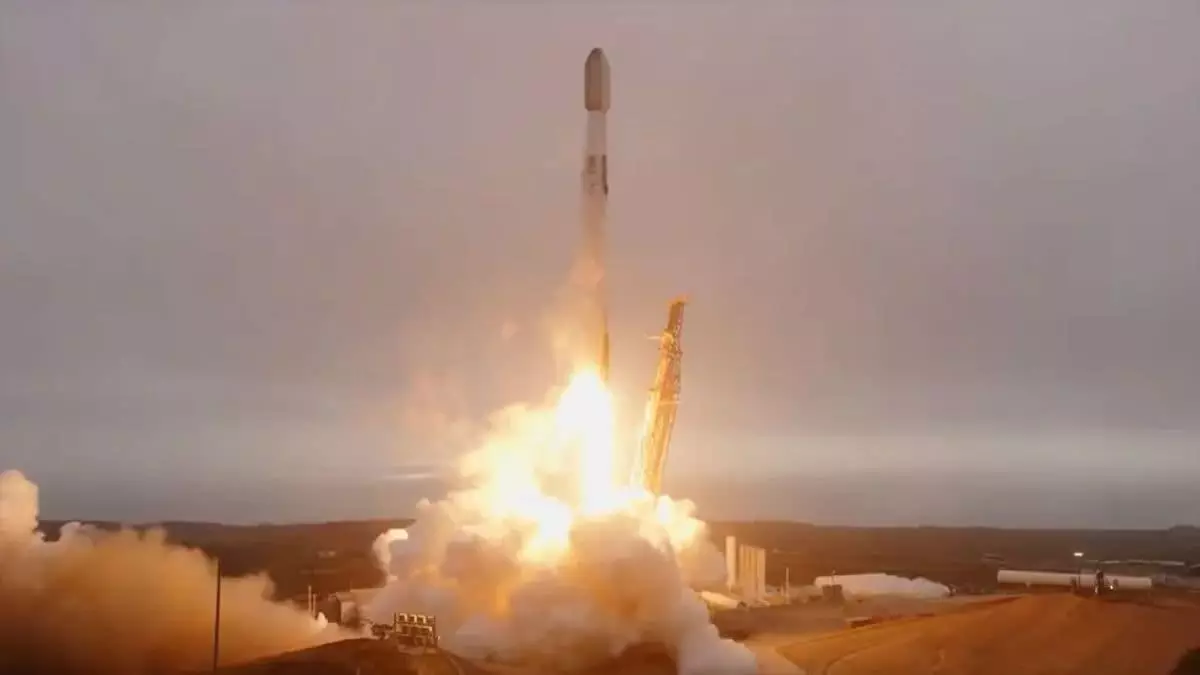In a stunning demonstration of ambition and innovation, SpaceX successfully launched a batch of 26 new Starlink satellites, further solidifying its status as a trailblazer in the realm of space technology. This recent launch from Vandenberg Space Force Base is not just another notch on SpaceX’s belt; it’s a resounding testament to the company’s relentless dedication to redefining access to global internet services. As we inch closer to a reality where high-speed internet is a fundamental human right, SpaceX’s Starlink initiative stands at the forefront of this electrifying revolution.
Unprecedented Efficiency in Space Operations
The fact that this launch utilized a first-stage booster, B1081, that has made 15 prior flights is nothing short of extraordinary. Such reusability is a game-changing element in the world of aerospace engineering, reducing costs and fostering an environment where space exploration can become more accessible. This efficiency setting by SpaceX signals to the industry that the old paradigms of single-use rockets are fading fast. The commitment to reusability also resonates with a wider audience who are increasingly aware of environmental and economic sustainability, placing SpaceX at the vanguard of a necessary transformation in how we approach industrial ingenuity.
Rethinking Connectivity Across Continents
One of the most exhilarating aspects of SpaceX’s Starlink initiative is its aggressive aim to blanket the globe with high-speed internet. The 7,600 active satellites in orbit are not merely a logistical marvel; they represent an urgent response to the glaring digital divide that has persisted for far too long. Rural and underserved populations now have access to essential connectivity that was once deemed impossible. In light of the pandemic, the importance of this service has only sharpened, effectively bridging gaps in education, telehealth, and work-from-home scenarios that increasingly define modern existence.
Navigating the Ethical Landscape
However, amid the excitement lies a critical examination of the implications of such technological domination. The race to fill our skies with satellites raises questions about space debris and long-term sustainability. Do we risk overcrowding our orbital paths at the expense of future scientific exploration? Furthermore, as we rely more on these systems, does the corporate control of such vital infrastructure pose threats to equitable access? These concerns must be thoroughly evaluated, lest we end up constructing a future where technology, rather than enhancing lives, becomes a tool for exclusion.
A Vision for the Future
Yet, despite these challenges, I remain optimistic about what SpaceX is doing. The ambitious goals set forth not only by Elon Musk and his team but also by many in the realm of innovative space exploration signify a culture that is not afraid to tackle the tough questions surrounding equity and technology. As we look towards a future powered by satellites connecting the most remote corners of the world, we cannot overlook the responsibility that comes with such power. The time for progressive policies that guide technological advancements ethically and sustainably is now. SpaceX’s journey is just beginning, and its impact will undoubtedly shape the fabric of our digital future.


Leave a Reply